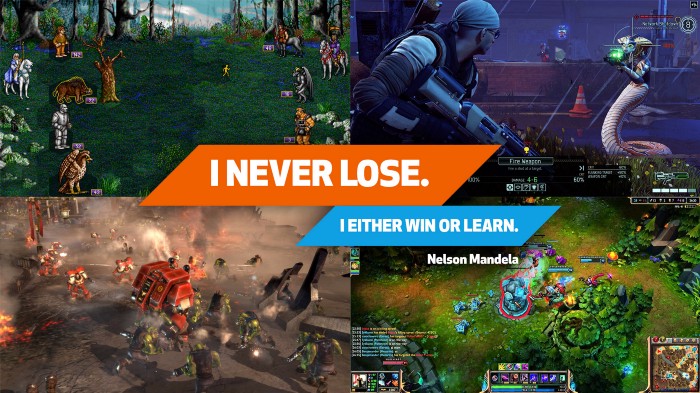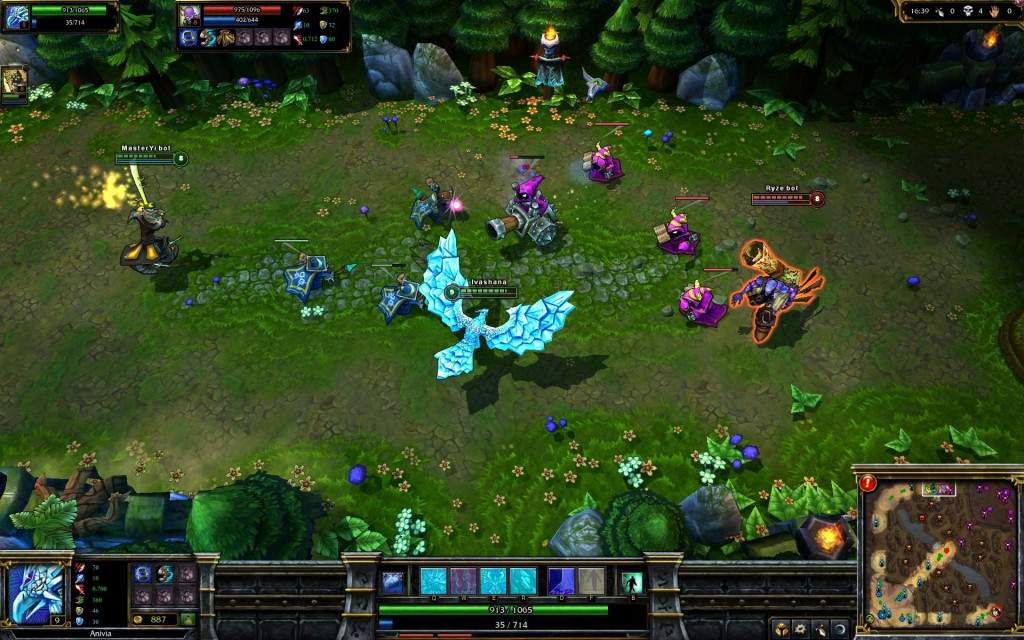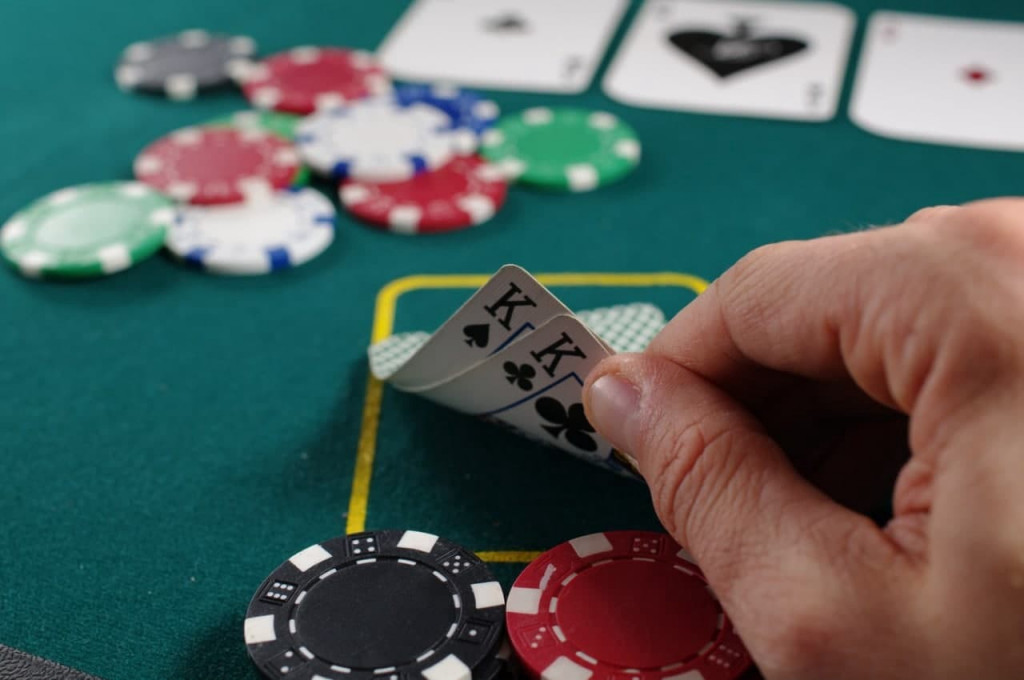What Can Games Teach You About Failure?

I love playing games. Video games, board games, all sorts of these.
I started with Heroes of Might & Magic 2 as a kid. At some point, I was among the 0.05% of Europe’s best players in League of Legends. These days, I spend long hours on a board game titled Twilight Imperium. I bargain, start wars and engage in diplomatic activities with my friends to mark my superiority.
Aside from all the fun, many games offer something special: a closed environment where you can test your skills and character. It’s a very unique playground where you can implement various strategies and approaches in dealing with people, teammates and rivals alike, without real-life repercussions.
Games taught me one of the most important lessons:
Failures are an integral part of life. Deal with it.
You cannot win without losing first
One of the first basic things you will learn while playing games is that you should acknowledge the idea of losing as something common and normal. With constant updates and expansions, many games go through changes in their rules. This means you have to stay on top of things in order to significantly increase your chances of winning. You need to try out and experiment with all sorts of new strategies.
You also have to accept the fact that you’ll (almost) never succeed during your first attempts.
I used to play a lot of League of Legends — a multiplayer online battle arena game where each player picks a special character from a wide pool of champions to fight against the opposing team. New content is added to LoL on a regular basis, and old stuff is slightly changed or completely reworked. That made me constantly try out new characters and strategies. Learning is not easy. It always made me lose lots of games at first, but in the end it helped me earn a higher ranking.
In some cases the business world works surprisingly similar to that of games. It evolves and often flips the script. And so, we have to adapt. We accepted this fact when we were working on changing the fee model at G2A. The old one was quite good but outdated. Preparations took us months. Still, we didn’t expect smooth sailing. We were overhauling a key component of the company’s entire business model after all! There were some unavoidable issues and quite costly errors, resulting in a few problematic weeks. However, it all paid off in the long run. The project turned out to be a great success, widely accepted by our customers.

Remember, however, that learning is not just doing stuff repeatedly in hopes of getting better at it. This becomes apparent especially when you watch a professional gamer hone their skills. Simply put, just playing more is not the most effective way of improvement. It’s important to evaluate what skills require work, and how you can achieve more. The most common way of doing that is watching game replays. You can review your performance and learn useful tactics from other players.
The same rules apply to the business world. I worked on a new product that generated small, but consistent revenue. The product owner was happy. But since I’m a data analyst, and inquisitive at that, I know that a steady, flat income is not enough to evaluate a project’s worth. Such simplification can give you the wrong idea, so I took a deeper dive, asking more questions. Did our customers like the product? Did they come back for more? Maybe they didn’t? What I found out was that G2A’s clients disliked the new product so much that it discouraged them from purchasing anything else on our platform. We had to withdraw the product despite the fact that it seemed profitable at a first glance.
The outcome doesn’t always matter
We all heard the “be result-oriented” phrase. Such approach favors the outcome of your actions, your efforts and the process of achieving the desired results are much less important. Studied hard for an exam, but failed it nevertheless? Sorry, but your hard work was all in vain. Made a risky business decision that paid off? Your success proved you made the right choice.
Still, the result-oriented approach is not always the correct path to follow. No one knows this better than poker players. Poker is a highly random game where luck often dictates the outcome. But the key thing here is keeping track of statistics from numerous games instead of hoping for a one good deal of cards. Do you have a 60% chance to double your money? It’s worth a try. Oh, you lost? Well, there was a 40% chance of that happening… Still, keep playing with your odds, and you’ll end up winning eventually.
All of this may be easy for me to say, but how can you do it too? How can you evaluate if the results stem from your actions, or perhaps they’re just a random effect? Good poker players can distinguish between these two. Let me illustrate that on a simple example.

We’re playing a game of poker. Basing on the progress so far, we estimate that we will lose only if the next revealed card is an ace. This allows us to calculate our odds, take our budget into account and decide if we should continue playing or not. If an ace indeed shows up — well, tough luck, we lose, but that was what we call a calculated risk. If the next card is a king, we’ll win, all according to our plan. But what if we lose anyway? That’s not bad luck anymore. That’s just our miscalculation. What if an ace is up next, but despite this we still win? Well, it’s time for a celebration, but remember that this was just a lucky shot.
We can translate this example to a common life experience. Nothing is ever 100% certain, but how much control over your decisions or projects do you have? Do you know what’s needed for success and what can cause a failure? Are your assumptions right? Answering these questions is key if you want to be become less luck-dependent and learn to make long-term plans successful.
You may also not have a reliable way of making proper assumptions. If that is the case, then you can rely on external experts or simply learn on your own.
Use your weaknesses to your advantage
The most basic strategy, not just in games, but real life as well, is to identify your strengths and use them to your advantage. Everybody knows that. But professional gamers go even further than that.
They swap their dominant strategies for weaker ones in order to increase their chances of winning.
It might appear counterintuitive at first. How can a suboptimal strategy grant you victory? But here’s the kicker: if your opponent can predict your playstyle, they’ll have a much easier time beating you. The competitive world knows that versatility can often be more rewarding that sticking to just your biggest strengths.
Those ideas can be applied to other areas, but probably wouldn’t work in complex settings such as relationships with fellow human beings. My usual approach to problems is a classic down-to-earth mathematician one: numbers, proofs, experiments, facts. Obviously not everyone has the same personality. So I need to be balanced in how I work, live or even just talk to others. How much should I stick to the style of thinking that works best for me? How much should I adjust myself to people who have different approaches to solving problems and handling social interactions? It is a game of balance between what I consider best and what works for the sake of a healthy cooperation and communication with people around me.
Sure, games can improve your reflexes, focus and sight — there’s enough scientific research to prove all that. But in my case, the benefits of games were less obvious. Some of the lessons I was taught were harsh, others surprising, and a few very time-consuming. One of the most interesting things is that if you approach games the right way, they can and will give you much more than just simple fun.
by Mateusz Aniserowicz, Senior Data Analyst at G2A.COM